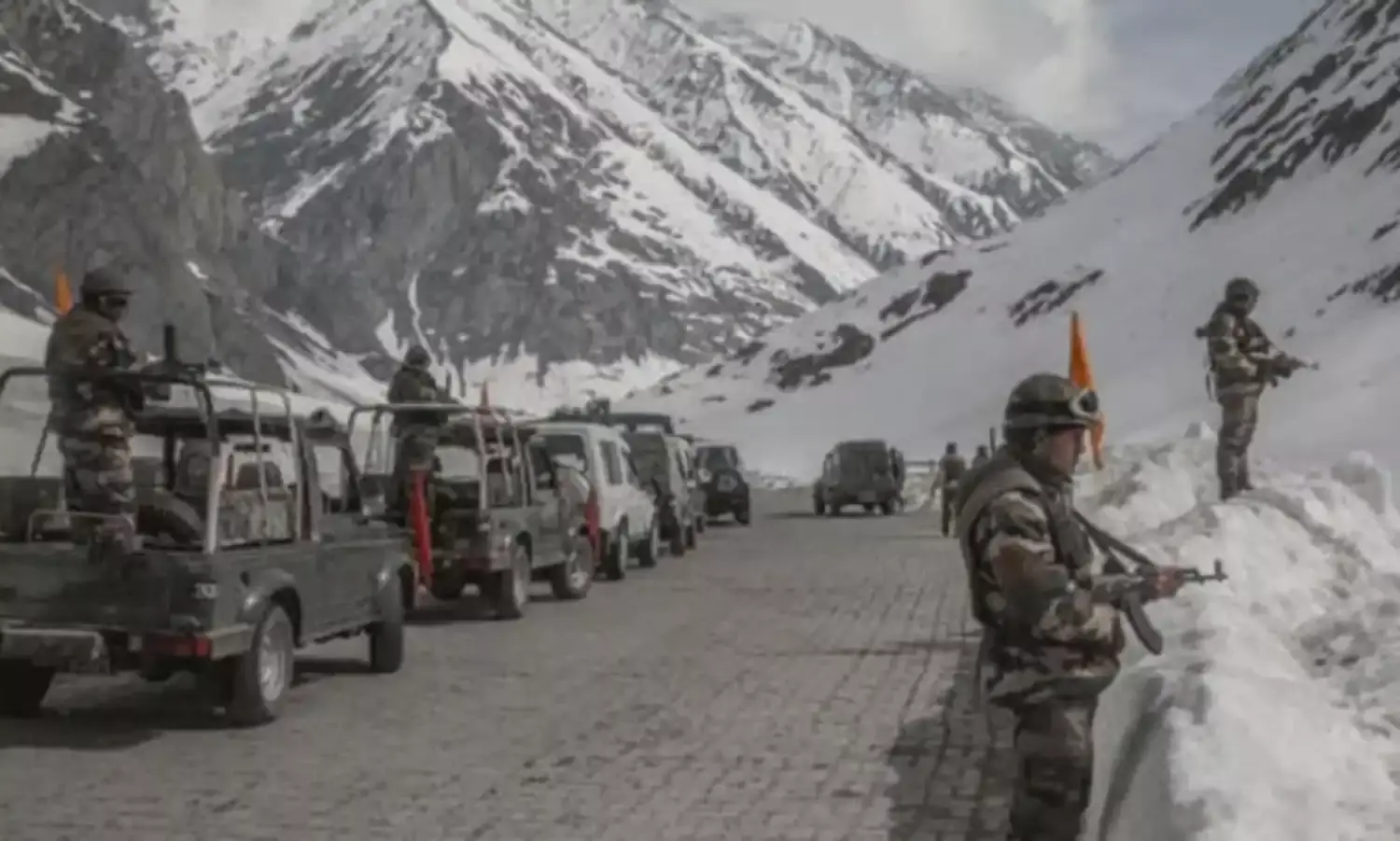
The website of the Ministry of External Affairs does not mention the principles of India’s foreign policy. However, it is generally believed that India follows the Panchsheel mantra, which constitutes the five principles of: mutual respect for each other's territorial integrity and sovereignty; mutual non-aggression; mutual non-interference in internal affairs; equality and mutual benefit, and; peaceful co-existence.
These are exclusively based on ‘idealism’, which India has tried to follow. But the world has moved on to ‘realism’ of hard power, and conflict has become dirty without rules, regulations and morality; the best example being China’s ’Unrestricted Warfare’.
China deliberately violated India’s territorial integrity once again with the aggression in Eastern Ladakh during 2020. Aside from intrusions, China has denied hundreds of square kilometers of Indian Territory to our patrols and many locals of Ladakh cannot use their traditional grazing grounds. Yet the government has whitewashed the Chinese intrusions and shifting of the LAC. The winter session of Parliament passed without any discussion on the issue though this was promised to be discussed.
China’s mobilization and continuing aggressive moves indicate, 2022 may witness further Chinese aggression. China has not responded to our demands for the 14th round of Corps Commander-level talks. Latest satellite imagery shows new structures of PLA and concentration of tanks in the area of Finger 8 on the north bank of Pangong Lake. Instead of Panchsheel China has been consistently practicing PunchIndia.
As pacifists, have we forgotten even the first principle of Panchsheel, which is mutual respect for each other's territorial integrity and sovereignty; mutual non-aggression? If not, then why have we permitted trade to prevail over China’s blatant aggression violating India’s territorial integrity and sovereignty? Among all the calls and hype to “shun Chinese products”, why has the India-China bilateral trade crossed the figure of USD 100 billion in the first 11 months of 2021 (up 46.4 per cent year-on-year) with a USD61.5 billion surplus in China’s favour?
A report by Oxfam in January 2020 showed India’s richest 1 percent population hold 42.5 percent of national wealth while the bottom 50 percent own a mere 2.8 percent. Also, India’s top 10 percent of population holds 74.3 percent of the total national wealth while the bottom 90 percent holds 25.7 percent of national wealth. The Corporate would not hesitate to sell their souls for financial profits but as a nation we have stooped so low that we are ‘rewarding’ Beijing for the aggression in Eastern Ladakh with a surplus of USD61.5 billion in 11 months.
Are we encouraging the enemy for another round with the defence minister reassuring Parliament: “not even one inch of territory lost”. The bigger danger appears to be that China has penetrated our system by ‘purchasing’ politicians, bureaucrats, organizations and media. Beijing is doing so world over – so why not India?
Addressing the Carnegie India’s Global Technology Summit 2019 in Bengaluru, External Affairs Minister S Jaishankar had said that to be a global power, India has to be a leading force in harnessing data. He said, “In many ways, the agenda in a digital era is very different where foreign policy is concerned compared to analogue era of foreign policy.”
On May 10, 2021, Chief of Army Staff General MM Naravane told the media, “There is an entire spectrum of strategic uncertainties that looms on the horizon and a whole-of-government approach is the need of the hour to deal with them.” The EAM is right in saying that India must harness data but what about data security?
How does one explain ISRO signing a deal with the Chinese firm OPPO for providing NavIC (Navigation with Indian Constellation) messaging services on mobile platforms? When Digital India was initiated the cyber security experts had pointed out that it did not have enough cyber cover and that even state-level data could be manipulated by adversaries.
Ensuring requisite cyber security would have raised the costs and execution of Digital India would have been slower, perhaps in a phased manner. But the government was in a hurry and the issue of security was overlooked. The spin doctors said that no data is secure anyway, so why bother at all.
Can the above be said for the ISRO-OPPO deal which includes exchange of technical information of the NavIC messaging service so as to build rapid, ready-to-use, end-to-end application-specific solutions by integrating the messaging service with the mobile handset platforms? Can the government deny that these messaging services will not have military applications? No, it cannot and that is why ISRO does not respond to media questions on the issue. The irony is that ISRO is directly under the PMO and still this has happened. So who has China purchased or blackmailed on what account? Through OPPO, China will be able to ‘access, interfere and alter’ the messages.
Wonder if our policy makers are even aware that under China’s National Intelligence Law and Data Security Law, OPPO is duty bound to assist the China’s Communist Party (CCP) in furthering China’s national security interests – be it OPPO India or in any other country. It is intriguing why ISRO had to ink a deal with a Chinese company amid all the hoopla about ‘Atmanirbhar Bharat’ and ‘Make in India’? Was there no other alternative – no other indigenous or foreign firm? What are the compulsions?
The government needs to come clean on the issue because simply saying that ‘security of messages will be ensured’ will not do. Insisting on this will indicate that something more sinister is afoot. China is way ahead of us in cyberspace and this issue cannot be taken lightly. Prudence demands that the ISRO-OPPO deal be canceled and another alternative sought.
Lt General Prakash Katoch is a veteran of the Indian Army. Views expressed are personal.

